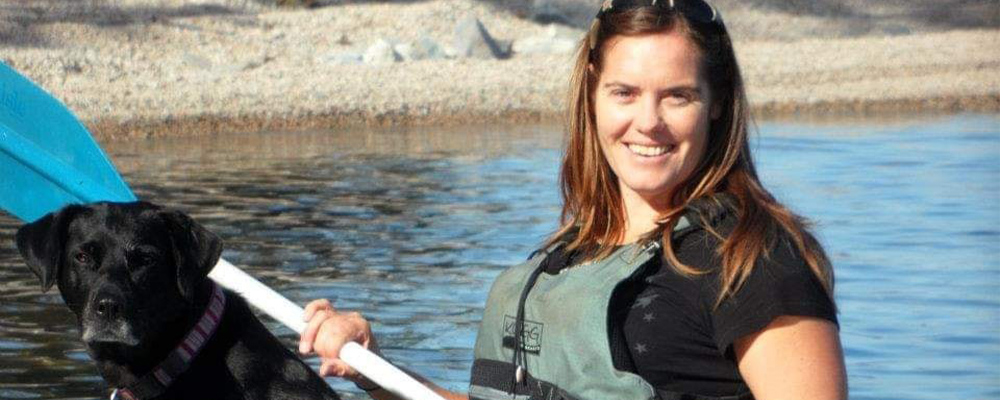
Congratulations to Chinook McLean for receiving our Master-Level Outstanding Presentation/Publication Award!
The Graduate Program Review Committee was impressed with Chinook’s accepted presentation at AERA, a notable achievement.
QUESTION AND ANSWER WITH SESSION WITH Chinook
What does receiving the award mean to you?
This award is heartening recognition of the hard work I have engaged in over the past few years as a full-time graduate student while also teaching full time. This award especially recognizes the value of my experiences presenting and publishing my research and poetry outside my classroom and research circle. Particularly in this COVID-era, sharing my pedagogical passions with the wider community outside my classroom has been proved inspirational and motivational.
What has your experience been like with the Okanagan School of Education?
My experience with OSE began in 2016 when I started my BEd in the Secondary Teacher Education Program (STEP). After that intense and revelatory experience, I completed a year of teaching before beginning my MA at OSE under the tutelage of Dr Leyton Schnellert and Dr Karen Ragoonaden. I continued to teach full time, commuting for classes on the weekends from my home in Tappen or completing coursework online until I began my research. I discovered that I definitely preferred in-person learning, and made some excellent, enduring connections with several professors and fellow grad students.
What is your research project?
My research explored the creation of transformative space in a Humanities classroom within a rural grade 7-12 school in British Columbia, Canada. More specifically, the study investigated how circle pedagogy, restorative practices in education (RPEs), and student voice contributed to classroom transformation. My study offers a practical illustration of transformation in education, including a discussion of not only what it means in theory, but also what it can look and feel like in the classroom itself. The new understandings add to the body of research relating to transformative opportunities that arise through classroom practices that promote student voice and demonstrate how both educators and learners can benefit when they engage in open, cooperative communication. Finally, my study provides insight into how the methodologies of a/r/tography and living inquiry incorporated as classroom practices have the potential to create powerful educational transformation.
Why did you choose that topic?
As I spiral forward in my pedagogical praxis, I continue to look for ways to more meaningfully engage in anti-oppressive advocacy including “reconcili-action.” I have been planting these seeds with my learners by teaching them about, and opening up our classroom to, student voice. As an educator in BC today, I feel that I ought to be doing more to engage my colleagues and our students and community in education for reconciliation. Though the pandemic has made it harder than ever to connect to the community, Indigenous and otherwise, beyond the school grounds, persisting with intra- and inter-community connections and conversations can help us to walk the path towards decolonization. My hope is that if enough educators work at “little t” transformations in our own classrooms and schools, then “big T” transformation – that is systems-wide transformation and decolonization – will move from the realm of possibility to probability.
What advice do you have for future graduate students?
Ensure each major project or paper that you work on for your coursework is something that you incorporate into your classroom and also your research. If your teaching aligns with your pedagogical passions, this shouldn’t be difficult, and – if you haven’t figured it out yet – this will help you hone in on your research topic. There will be times that you are totally jazzed about your work, and there will likely be times that you will be utterly demoralized by the academic marathon you’ve been running. Try to remind yourself that is all part of the process. If you find yourself bawling at the end of the day in your classroom and re-writing complete sections of your thesis, know that you aren’t the first. Be prepared to adapt and you will thrive.
Graduate Supervisors: Dr. Karen Ragoonaden and Dr. Leyton Schnellert